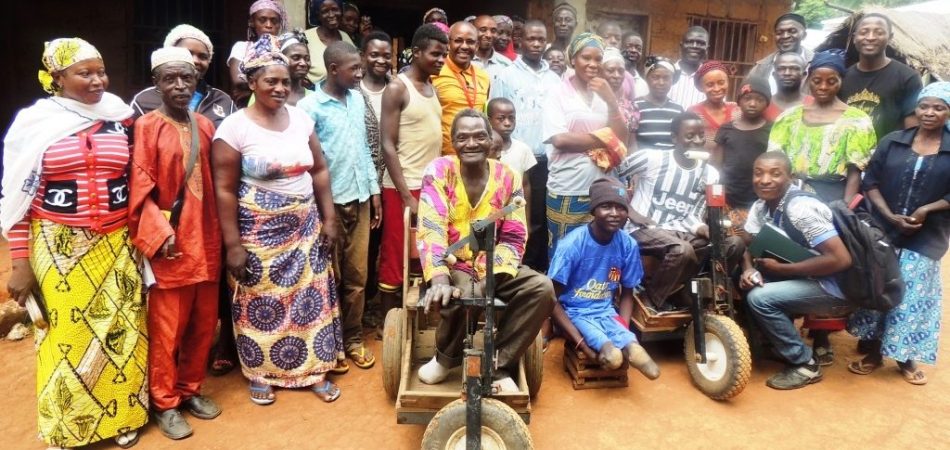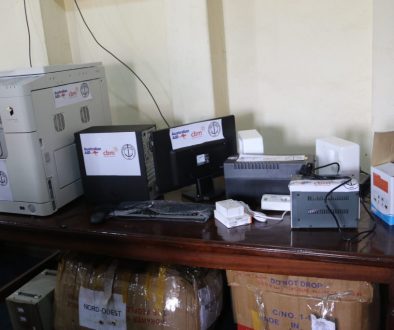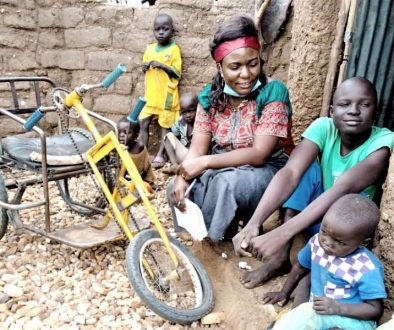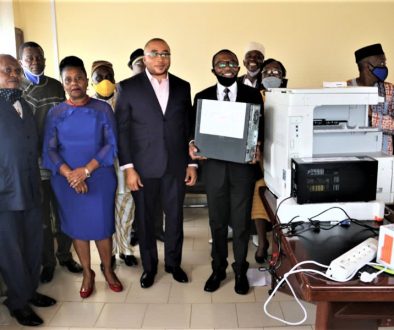SEEPD Approves Ten C-BAN Groups in the Northwest Region
By Fru Rita Ngum
Ten Community Based Advanced Njangi (C-BAN) groups initiated by the Socio-Economic Empowerment of Persons with Disability (SEEPD) program in four Divisions of the Northwest Region have been approved and operationalised by the program. This was during a visit by the SEEPD Program team to the C-BAN groups in Weh, Wum, Kumbo, Ntumbaw, and Fundong in June 2018.
Community-Based Rehabilitation Supervisor, Mr. Kenchi Joseph led the team comprising C-BAN consultant, Luice Fomugang, Data Clerk, Nsom Oliver and SEEPD Communication Officer, Fru Rita Ngum.
The working tour had as objective to assess the different groups to ensure that they meet the 16 principles of C-BAN.
The visit came on the heels of a10-day training with CBR field workers and field agents in five Divisions who will work closely with the groups to ensure that they meet acceptable standards.
In each group, Mr. Kenchi introduced the team members and highlighted the objective of the visit which he said, was to give approval for the groups to kick-start financial operations. He noted that the hope is to see an improvement in the livelihood of persons with and without disability through their personal savings.
Mr. Fomugang with his technical knowledge on C-BAN began discussions by reviewing the constitution which the groups had developed pending revision by the C-BAN team. Their constitutions outlined the management committee members, fines, saving modalities, loan procedures, and laws that govern savings and loans.

He said that C-BAN is different from other ‘Njangis’ in that it is a self-selected and trustworthy group of persons who come together to save and loan money in a transparent way.
The SEEPD Program has already provided the different groups with a safe. Mr. Luice clearly explained the role of the President, Financial Secretary, Minute’s Secretary and Treasurer in order to avoid conflict of interest.
In an interview with some members, they explained that they have been involved in petty businesses like roasting meat, selling palm oil, salt, beans, and corn. To them, the coming of C-BAN will help improve their businesses given that they can now save and loan money.
Mr. Mue Elias, a person with visual impairment and a member of the Weh C-BAN group says he hopes to do business and sponsor his children in school just like other sighted persons.

The C-BAN ‘Njangi’ has gone operational with approval also from stakeholders in each village like the local authorities who have been sensitized on the group and its importance.
In Sop found in Ndu Subdivision, the Fon of the area, a member of Mini Yuu RRAA C-BAN group was present in the meeting during which he applauded the SEEPD Program for the good initiative. He pledged his support in ensuring that everyone in the group respects the C-BAN principles.
Money, they say is power. The C-BAN initiative has brought together members who usually shy away from joining groups, especially persons with disabilities. In Weh for instance, since 2015 the group has been timid but with the coming of C-BAN, members have been motivated to re-join the group.
At the end of each visit, the CBR Supervisor urged the management committee and members to work harder to ensure the success of the group in this pilot phase of the project. He promised that if success is recorded, the initiative will be extended to another phase.



